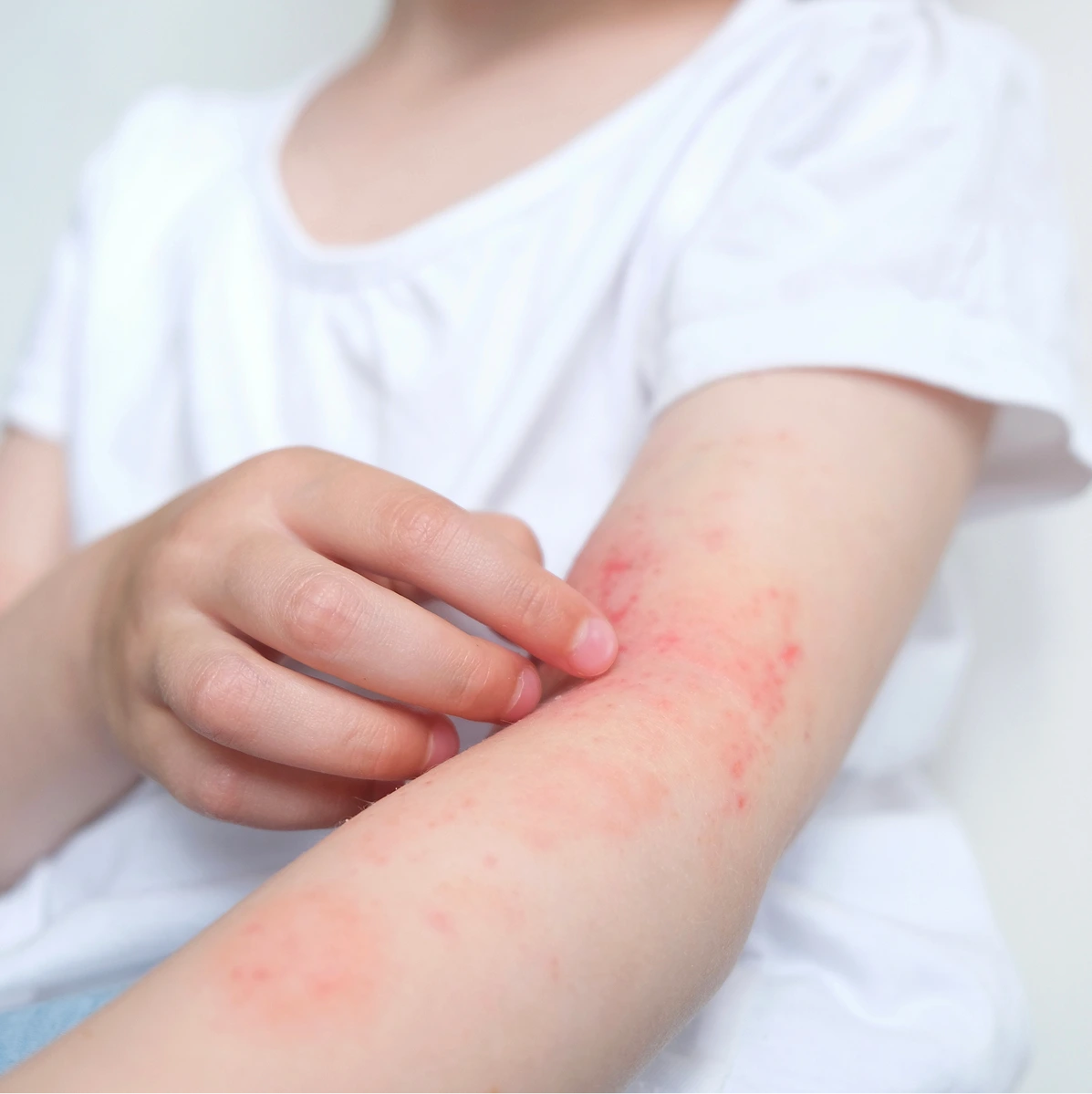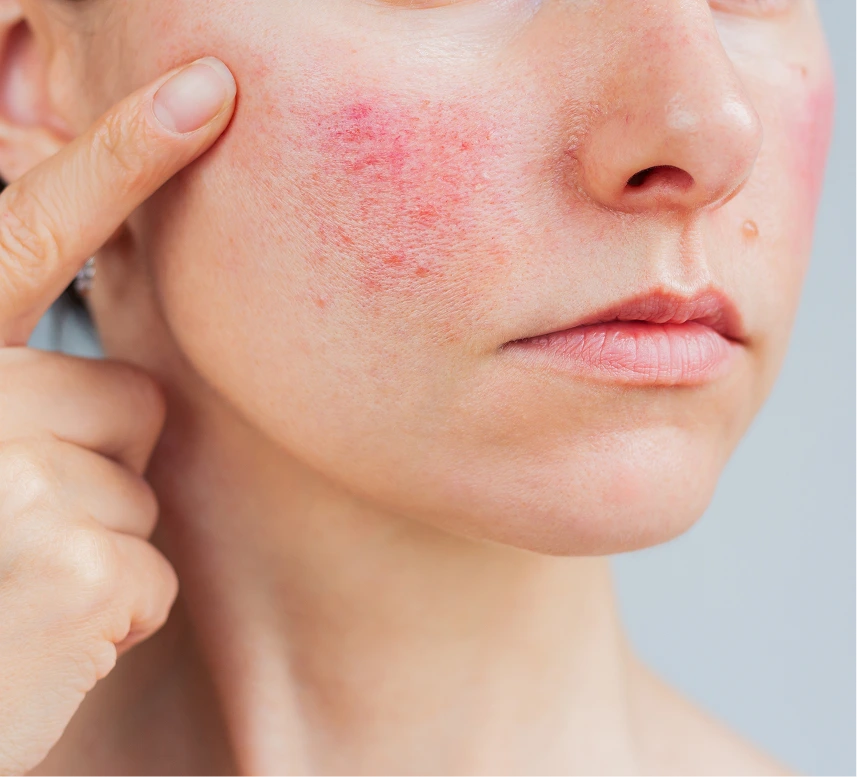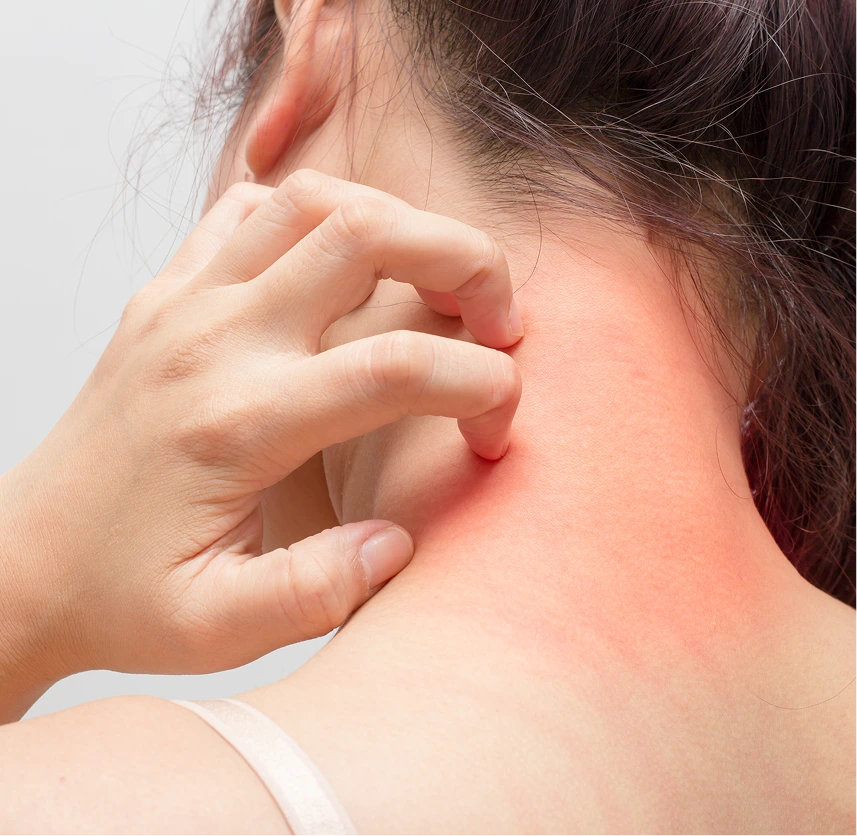
Eczema can be a very frustrating, uncomfortable, and embarrassing condition, and it can have a seriously negative impact on daily life. Effective management of this problem begins with identifying triggers and developing a treatment plan tailored to your skin’s unique needs. If you’re interested in eczema treatments in Phoenix, Buckeye, or Surprise, for either you or your child, our specialists at Regency Specialties can help.
Eczema (also known as dermatitis) is a skin disorder that most commonly affects infants, children, and teenagers, but it can also persist into adulthood. The condition is characterized by red, dry, flaky skin that severely itches. Eczema most often occurs due to an allergic reaction or an immune system malfunction and typically appears on the face, hands, feet, scalp, buttocks, neck, and the insides of the elbows and knees. If left untreated, eczema can cause bumpy, dry, itchy skin over time.



Topical creams are often prescribed for mild to moderate eczema to help reduce inflammation and soothe the skin. These may include moisturizers and topical calcineurin inhibitors, which work by suppressing immune responses that trigger eczema flare-ups without the side effects of steroids.

The cost of eczema treatment in Phoenix, AZ, typically ranges from $150 to $500 per visit, depending on the severity of symptoms and the type of treatment prescribed. Managing irritated skin may involve topical creams, oral medications, or advanced therapies such as light treatment, all tailored to the patient’s unique needs.
Consulting with our dermatology provider ensures an accurate diagnosis and a personalized plan that helps reduce discomfort and restore healthy skin.

For teenagers especially, eczema can have a significant emotional impact. Blisters, redness, and scaly skin aren’t exactly attractive. Combined with the discomfort of the condition, this can result in a truly life-impacting issue.
Working with Regency Specialties will help. We are the premier dermatology clinic in the Phoenix, Buckeye, and Surprise area, led by the nationally acclaimed Dr. Betty A. Hinderks Davis. Not only will we treat your eczema, but we will also help you establish a foundation for lifelong healthy skin.
When you choose Regency Specialties, you don’t have to be embarrassed or self-conscious with us. We’re on your team, and we are here to help you become the healthiest version of yourself.

If you’re interested in eczema treatment in Phoenix, schedule a consultation with one of our dermatology professionals. We are a multi-specialty group delivering advanced treatments in dermatology, plastic surgery, hand surgery, breast oncology, reconstruction, and dermatopathology – all in one practice. Our team provides the highest level of care and availability, with experienced medical dermatology specialists in Arizona. We make you feel welcome from the moment you enter our door to your very last follow-up appointment. To learn more or schedule a consultation, please call (623) 243-9077 or contact us online.